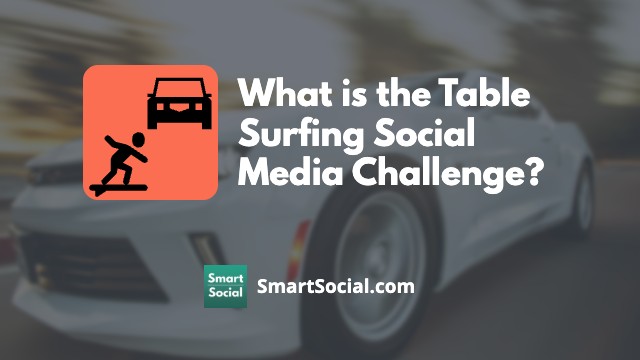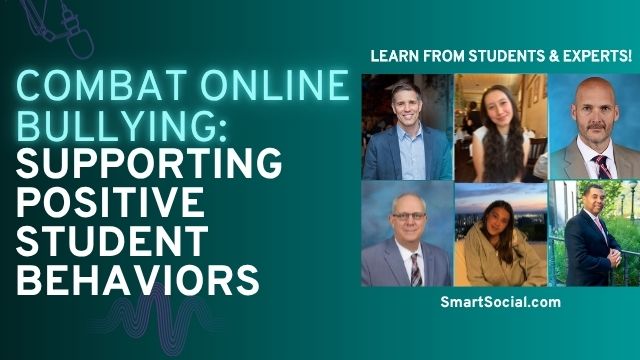Negative Effects of Snapchat for Teens
Green Zone App
(Click here to learn more)
Dangerous Social media challenge
(Click here to learn more)
Red Zone App
(Click here to learn more)
Gray Zone App
(Click here to learn more)
Snapchat is a very popular social media app students often use to keep in touch with their friends and family, but it also opens doors to meeting strangers and predators finding students where they are.
The "disappearing" messages feature of Snapchat makes it very tempting for teens and tweens to share compromising photos or engage in cyberbullying and the Snapmap sharing a student's physical location can be a scary thought for parents who want to protect their kids from predators.
Students, parents & teachers: View the full VIP lesson: Snapchat Safety Guide for Students, Parents, & Teachers. This resource includes multiple video lessons for students, parents, & teachers with worksheets for students to follow-along and reflect on their Snapchat habits.

Click here to learn more about Teen Social Media Statistics (What Parents & Students Need to Know)
Negative effects of Snapchat for Teens
- Predators - easy connections to strangers & Snapmap dangers
- Screen time addiction - gamification of staying on the app with Snapstreaks
- Bullying - easily spreads at school with no way to prove who is involved with “disappearing” messages
- Access to drugs - rampant on the app
- Mental health - creates unrealistic image expectations with selfie filters & editing
Expert advice about making Snapchat safer
1. How parents can talk to their kids about Snapchat

Lina Velikova, MD for disturbmenot.co
Snapchat is a very fast and addictive social network that can negatively impact teens’ and tween’s self-esteem. It is designed to encourage people to post things daily and be connected at all times. The major problem is that people usually post idealistic photos on Snapchat, thereby creating pressure on everybody else to do the same.
Teens may easily feel dissatisfied if they don’t look fit and beautiful like others on Snapchat. The dissatisfaction may lead to a number of mental health conditions such as anxiety, depression, eating disorders and many more.
Another issue with Snapchat is cyberbullying. Unfortunately, it is not so rare among teens, plus it makes it more difficult to trace since all of the Snapchat posts disappear very quickly.
The most important thing for parents is not to judge or undermine the importance of social media to their kids. Instead, they should talk to their kids about social media and encourage them to be happy with the way they are. Spying on kids may affect their trust and cause even more problems in the future. The best (and hardest) strategy is to teach them how to be safe online and have occasional conversations to check for potential alerts.
2. How to get your kids out in the world and off their phones
Laurie A. Couture, LMHC

Snapchat and the screen medium itself have the same addictive effect on the human brain as opioids. Adolescents and young adults are more vulnerable to behavioral addictions than adults because the prefrontal cortex, the part of our brain that can put the brakes on impulsive behavior, does not completely development until the mid-20s.
Due to their heavy use of screens and apps like Snapchat, teens are also missing out on face-to-face social connections with family and friends, physical activities, time in nature, solitude and hands-on activities that are crucial to optimal neurological, psychological, social and physical development.
I recommend that parents think outside the box and focus on what nature intends for their child's development. Families who seek out educational alternatives such as hands-on, project-based or arts-based schools and homeschooling can help their child escape some of the pressure of the public school peer group and expectations that social media is a requirement for friendships. Assist your teens with setting up activities, groups and events at your home or in the community where teens can have real life experiences and time to connect and have fun.
Conclusion
It’s important for parents to have open communication about all social media. We especially encourage this for Snapchat. The pressure to post perfect looking photos or keep up with their “streaks” can be harmful for teens and tweens’ self esteem.
Talking with trusted adults about self-confidence and the importance of knowing your worth outside of social media is a good way to combat the negativity that often comes from Snapchat.
Students are you using this page for your homework and need to cite your source? Use this MLA format:
“The Negative Effects of Snapchat on Teens” SmartSocial, 4 March 2022, https://smartsocial.com/post/effects-of-snapchat-teens.
Parents & teachers: View the full VIP lesson: Snapchat Safety Guide for Students, Parents, & Teachers. This resource includes multiple video lessons for students, parents, & teachers with worksheets for students to follow-along and reflect on their Snapchat habits.
Protect your family and enter for a chance to win cool prizes
Become a member or log in to learn more on this topic
Protect your family and enter for a chance to win cool prizes

., start learning from this page to earn points!*
Hello, I'm Josh, the founder of SmartSocial.com.
Don't leave this page until you fill out our feedback form that will appear after you learn from the resources...
Become a Very Informed Parent (VIP) to get our social media suggestions in your email every Tuesday & Thursday.



Hello, I'm Josh, the founder of SmartSocial.com. Protect your family by taking my 1 minute quiz
This quiz will help you understand how safe your family is


Schools & Districts: Partner with us to protect your community online
Our remote presentations (and website) teach over a million parents and students each year how to be safe so they can shine online. We teach students how their accounts can be used to create a portfolio of positive accomplishments that impress colleges and employers.


Join Our Smart Social Podcast
each week on iTunes
With over 500 episodes, Josh Ochs interviews psychologists, therapists, counselors, teachers, and parents while showing you how to navigate social media to someday shine online.
Listen on:



.jpg)
.jpg)
.jpg)


